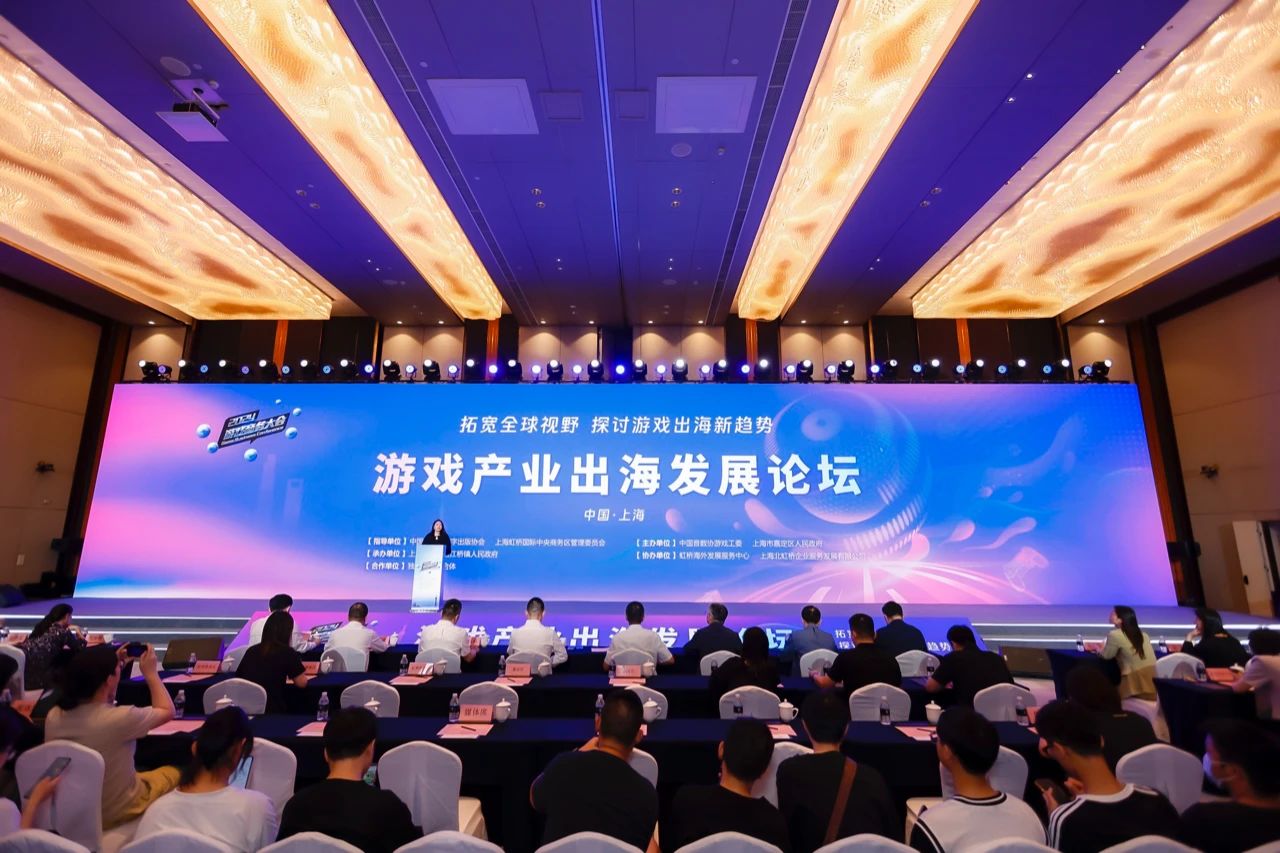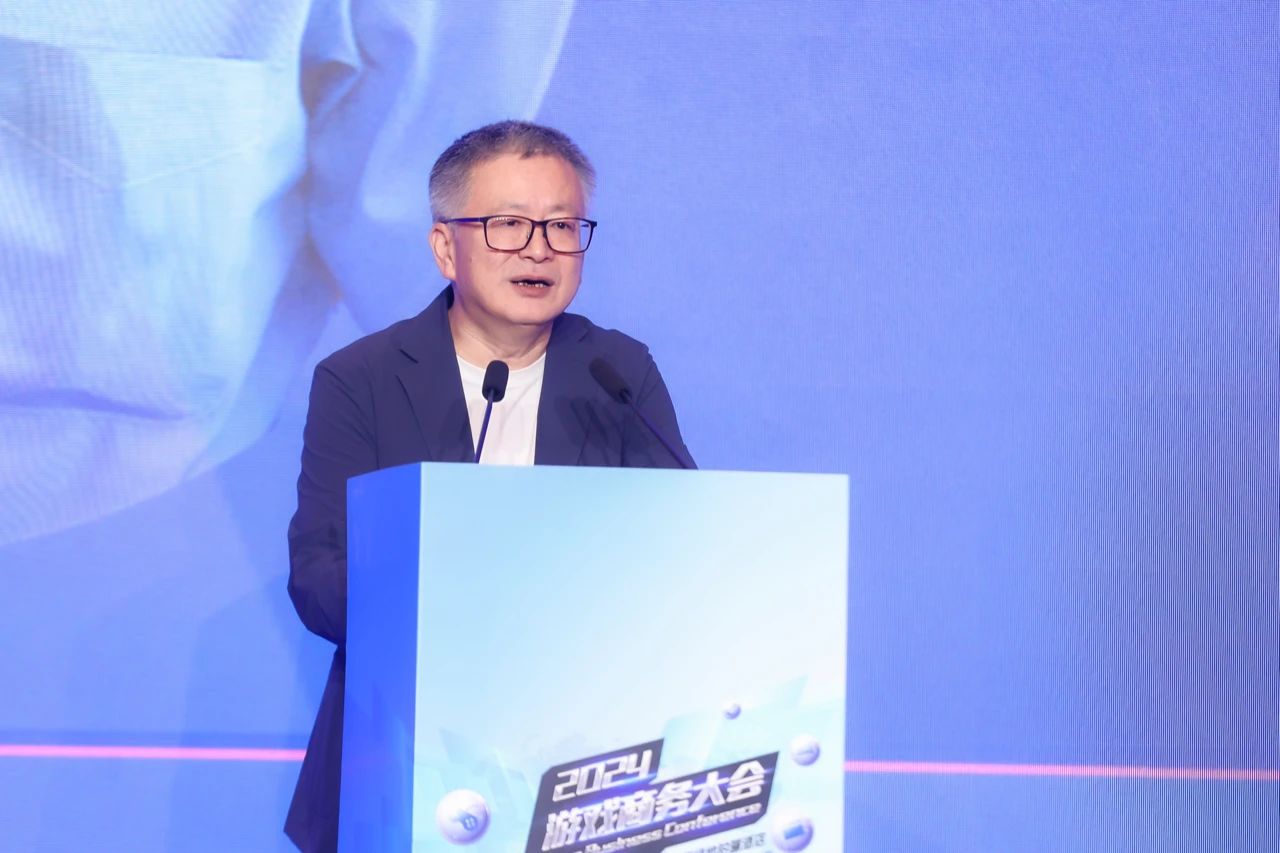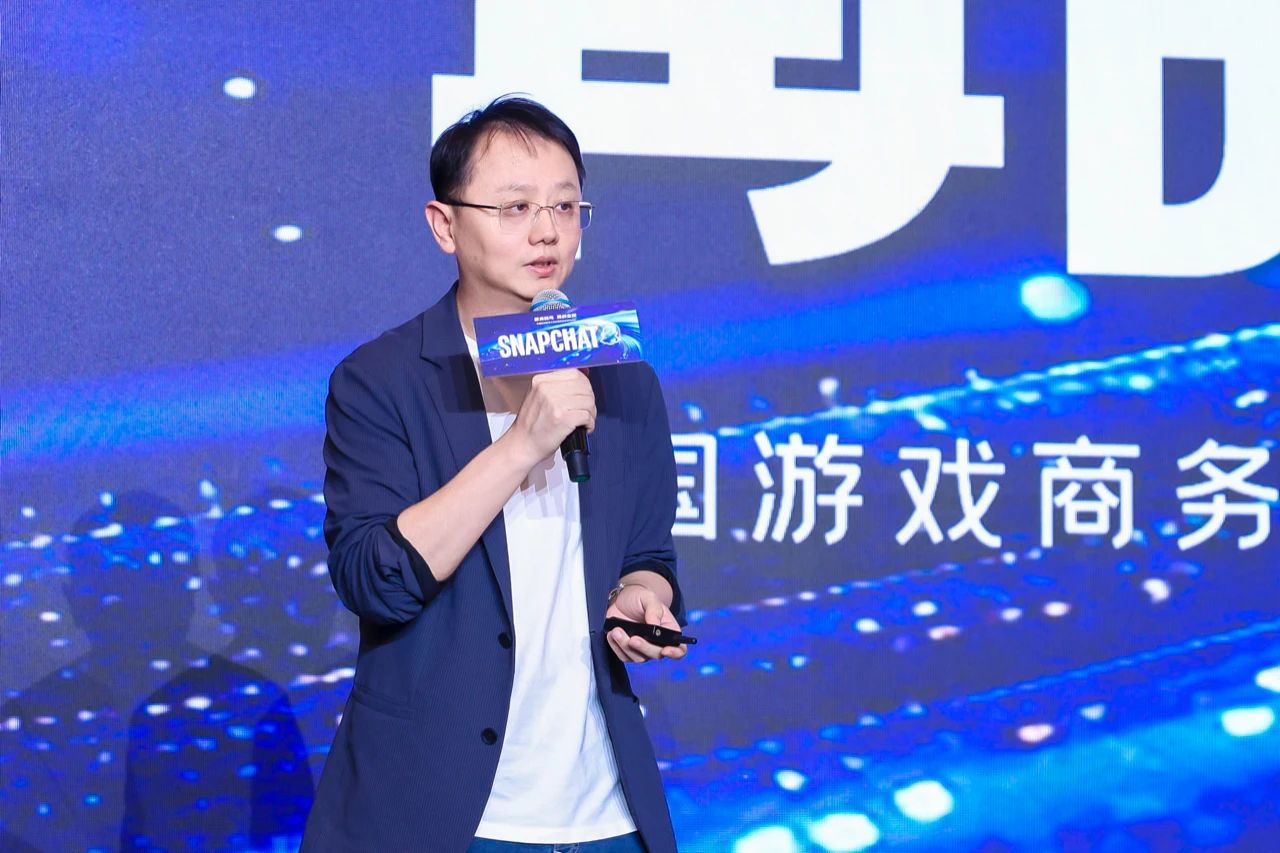Chinese game makers overseas momentum is booming, 2023 self-developed game overseas sales revenue of 16.3 billion US dollars field.
����ʱ�䣺2024-07-24
On 24 July, under the joint leadership of the China Audiovisual and Digital Publishing Association (CAADPA) and the Shanghai Hongqiao International Central Business District Management Committee, and hosted by the Game Work Committee of CAADPA and the Shanghai Jiading District People's Government, the 2024 Annual Game Business Conference was successfully held in Shanghai.

The scene of the 2024 Annual Game Business Conference.
Game Industry Overseas Development Forum
Ao Ran, Executive Vice President and Secretary General of the China Audiovisual and Digital Publishing Association (CADPA), said in his speech that China's game industry, with its profound cultural heritage and continuous technological innovation, has gained a high degree of recognition on the world stage, and in recent years has maintained unprecedented vitality in developing overseas markets.

Ao Ran, Executive Vice President and Secretary General of the China Audiovisual and Digital Publishing Association, delivered a speech.
According to Ao Ran, there are three important features of the current overseas game work: First, the layout of Chinese games in overseas markets is increasingly diversified, and global expansion has achieved remarkable results. In 2023, China's self-developed games in the overseas market reached $16.366 billion in revenue, of which the United States, Japan and South Korea accounted for more than 50% of the overseas revenue of Chinese games. Especially in mature markets such as the US, Germany, UK, Japan and South Korea, the number of Chinese game products has continued to grow, and more and more products have entered the top list. The overseas competitiveness of Chinese game companies continues to grow, and their popularity continues to increase.
Zhang Yijun, First Vice President of China Audiovisual and Digital Publishing Association (CAADPA) and Chairman of the Game Work Committee, Ao Ran, Executive Vice President and Secretary General of CAADPA, and Tang Jiajun, Deputy Secretary General of CAADPA and Secretary General of the Game Work Committee, and other distinguished guests attended the conference.
Second, Chinese game companies continue to skilfully integrate traditional Chinese culture with modern game design concepts, creating a brand image and benchmark for Chinese games. In recent years, a number of game masterpieces have stood out for their profound and clear cultural expressions, implanting representative Chinese elements such as national culture, natural scenery, musical melodies, festive customs and other elements into the game world, and bringing an immersive journey of Chinese culture to gamers around the world. With games as the medium and culture as the soul, we have presented a rich and colourful cultural picture to global players, giving new life to traditional culture in the digital age and allowing the world to better understand China and feel the charm of Chinese culture.
Thirdly, technological innovation is becoming an important driving force for the progress of China's game industry, providing a strong support and guarantee for games going overseas. Chinese game companies adhere to innovation and technology as the core driving force of the game industry, and while promoting the overseas development of game products with the help of the latest technology in the field, such as the AIGC, they also build an international image by sharing and exporting independently developed technological achievements. At this year's Game Developers Conference in San Francisco, Tencent, NetEase, MihaYou and many other Chinese game companies participated in the conference, and through technology sharing, they showed the world a series of breakthrough achievements in game technology, from self-developed game AI engine to 3D character generation technology, which has enhanced the competitiveness and influence of Chinese games in the global market.
While acknowledging the successes, it is also necessary to take a sober look at the problems and challenges. At present, games going overseas are subject to greater growth pressure, costs are rising, various phenomena of involution are also being exported overseas, and inherent problems such as cultural differences, lack of local talent, and fluctuations in regional exchange rates still exist. Faced with a development situation where opportunities and challenges coexist, Ao Ran made three suggestions:
First, Chinese game companies should actively seek cooperation opportunities with international counterparts and work together to enhance the international competitiveness and market influence of game products through technical exchanges, market sharing and joint development.
Second, they should pay attention to improving the level of technological innovation. They should increase technical investment and strengthen R&D and application of core technologies such as engines and image processing with independent intellectual property rights, so that we can take the initiative and be independent and controllable in the international game market where technology is the core competitiveness.
Third, although games and traditional cultural expressions remain relatively independent in their respective fields, they are constantly interpenetrating and influencing each other. We have the responsibility and mission to make the overseas road of the Chinese game industry wider and wider, and the international dissemination of Chinese culture will become stronger and stronger.
Game Globalisation Forum
Tang Jiajun, Deputy Secretary General of China Audiovisual and Digital Publishing Association and Secretary General of the Game Work Committee, said in his speech that driven by internal strategic needs and external environmental changes, the globalisation of game companies has entered a whole new stage, and the strategy of going overseas has gradually changed from the original 'optional' to 'mandatory' in the development of the game industry. The strategy of going overseas has gradually changed from an 'optional' to a 'mandatory' option in the development of the game industry.

Mr Tang Jiajun, Deputy Secretary-General of the China Audiovisual and Digital Publishing Association and Secretary-General of the Game Industry Committee, delivered a speech.
Tang Jiajun had four points to share on several key issues of games:
First, if you don't go overseas, you are out of the game. Cross-regional industrial transfer is an important key to promoting economic development, and in the game industry today, the slowdown of market scale growth, the saturation of the demographic dividend, and the rising domestic operating costs urge companies to find ways to break through the game.
The second is to understand the globalisation vision of going overseas, standing on a higher level, looking at the unevenness of the world, and seeing the opportunities that such unevenness brings.
Third, to understand the strategic layout of going overseas, we must understand the local market situation, choose the core market, strategic market, opportunistic market and emerging market, and fully combine with our own goal of going overseas, and clarify the strategy of going overseas.
The fourth is to understand the inward roll of going abroad, grasp the boundary between innovation and inward roll, innovation needs the stimulation and promotion of the competitive environment, to avoid the waste of resources and reduction of efficiency caused by such stimulation, and better go to stimulate the innovation power of our game enterprises.

